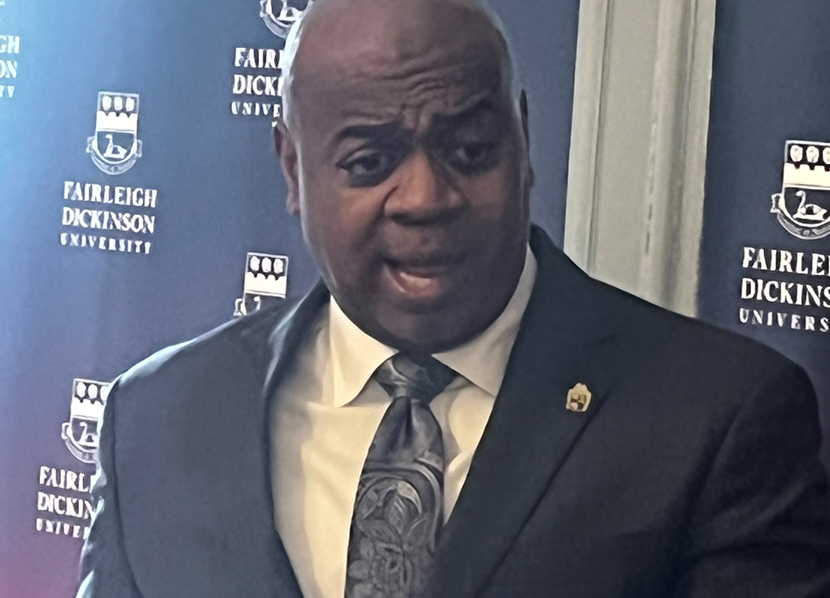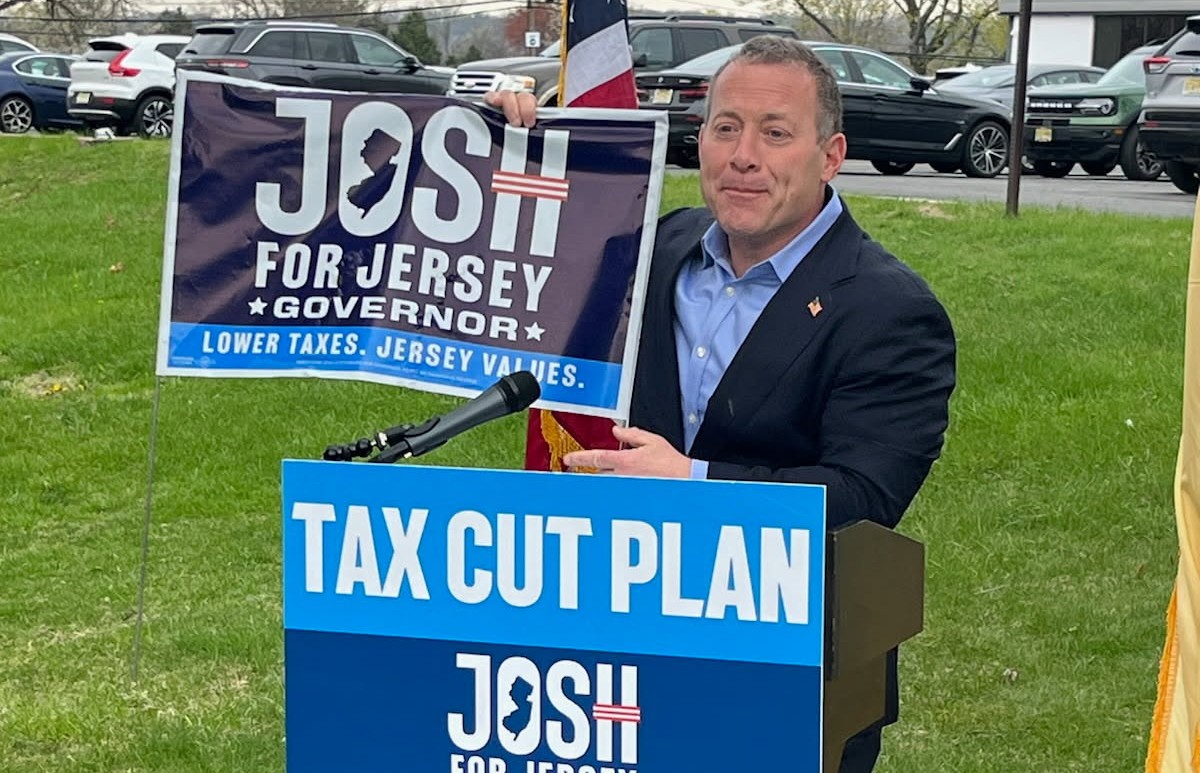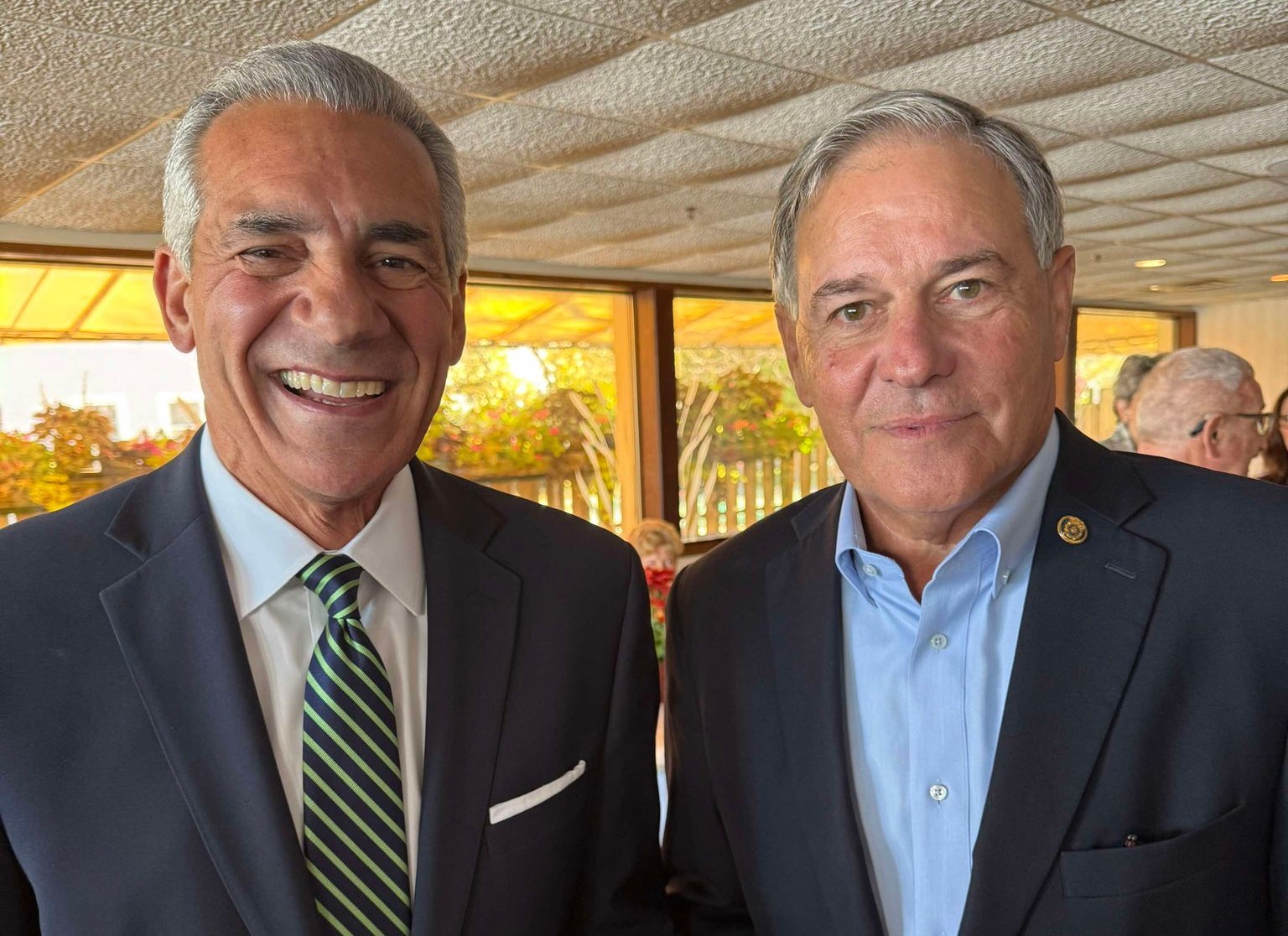
Are New Jersey Democratic candidates, even in the age of revanchist MAGA insurgency, active pawns in the eternal geographic power play, and might that be the best opportunity to save the party from irreparable decline? A look at the present landscape of gubernatorial candidates suggests these old habits die hard, and these will play a role in determining the nature of the Democratic Party’s approach to regaining the confidence of so many disillusioned voters after the 2024 presidential election.
Following the release of some to-the-point, affordability and law-and-order campaign ads from the Josh Gottheimer and Steve Sweeney campaigns, these two Democratic men, one a sitting congressman, the other the former state senate president, are two blue anchors at the northern and southern ends of the Garden State. Both appear to characterize themselves as centrists, and have the legislative records to prove their credibility in that regard. While all the campaigns are effectively touching on the issue of affordability—with New Jerseyans finding cost of living as a top concern in the state—these two candidates in particular are from different backgrounds but reasonably similar to the average Democratic voter in terms of policy, if not necessarily personality. On the other side of the race, Democrats like Mayor Steve Fulop, Mayor Ras Baraka, Congresswoman Mikie Sherrill, and Sean Spiller are looking to secure the progressive wing of the Democratic party. Three of these four, however, hail from the Essex County base of power, which has dominated so much of New Jersey Democratic politics.
The overall establishment has largely congealed around the congresswoman, with Newark’s mayor capitalizing on his political independence, which can both advance and potentially harm his ambition. As then-Congressman Andy Kim was largely dismissed by the Democratic Machine he spurned, the South Korean-American Millennial was able to effectively capture Democratic resentment towards what the rank-and-file. They saw an anti-democratic institution in the awarding of the county line on ballot placements and a landmark court case shattered that sacred carrot-or-stick tool of the Democratic county organizations. As Kim bucked the system, Baraka poses a potential threat to the Democratic organization’s lever-pullers. Whether or not he can effectively operate a strong campaign outside of Newark, where he has reigned without significant challengers since his ascension to the mayorship, remains to be seen.
Baraka continued to fortify his independent image with a letter on Sunday, sure to irritate party leaders. He called on the other Democratic candidates to reject county endorsements from what he described as non-transparent county processes, where committee members, candidates, and voters could be fully engaged. He further called upon candidates to “denounce” any such endorsements, saying, “The only way to change a broken system is to confront it head-on.”
Should Steve Sweeney, depart from the race before the primary election, it is likely that many of his South Jersey supporters more inclined to support establishment-aligned candidates would shift towards Josh Gottheimer in his Bergen base. It should be noted that there are no universals, and Camden may prove an island of support for Baraka, given Mayor Victor Carstarphen’s endorsement. Gottheimer, however, would doubtless prove a governor willing to work with political partners around the state to secure an effective administration in return for their support. South Jersey Democratic leaders who could be looking to undermine Chairman LeRoy Jones’-dominated Essex bloc, would find themselves with a choice of Baraka, at the potential cost of a less-constrained candidate as he fiercely asserts his independence, or Gottheimer, who would not divide the Essex base, per se, but exert strong northern influence backed by a well-stocked warchest.
In all, this could be the primary election New Jersey Democrats truly need to reorient themselves with their own voters. When Phil Murphy launched his candidacy in 2017, the party chairs, led by then-State Chairman John Currie, largely fell into alignment behind the Goldman Sachs executive quickly. Fulop and Sweeney were effectively pushed aside, and Murphy sailed into the nomination. Democratic voters themselves were not given much of a choice, so much as presented with their anointed. It was a successful anointing, certainly, as Murphy handily defeated Kim Guadagno. He then, albeit narrowly, defeated Jack Ciattarelli in 2021 and broke the trend of Democratic governors failing to win a second term since the 1970s.
But in neither gubernatorial election (nor the 2024 presidential election) were the Democratic voters themselves offered an opportunity to truly voice their concerns via the ballot box. Now, with the 2025 primary election approaching, a number of candidates with diverse backgrounds, some ideological differences, and geographic power bases, represent a considerably more authentic and fair selection for their constituents. This is especially important given the dissatisfaction within the Blue ranks who have, for years, been handed a candidate, even though those registered voters outnumber Republicans by almost a million. New Jersey has not been carried by a Republican candidate since 1988 with George H.W. Bush, but Vice President Kamala Harris carried New Jersey with 51.9% whereas four years prior, President Joe Biden took 57.3%. The 2025 primary may be the reality-check the organization so desperately needs if they wish to stem their electoral degradation.
(Visited 6 times, 6 visits today)
The race for Governor in New Jersey is heating up as the Democratic primary approaches. With several candidates vying for the nomination, it’s important to understand the dynamics at play in this competitive race.
One of the frontrunners in the race is Phil Murphy, the incumbent Governor seeking re-election. Murphy has been a popular figure in New Jersey, with his progressive policies and handling of the COVID-19 pandemic earning him praise from many voters. However, he faces challenges from within his own party, with some Democrats criticizing his handling of certain issues, such as the state’s economy and taxes.
Another candidate to watch is State Senator Richard Codey, who has been a prominent figure in New Jersey politics for decades. Codey is known for his focus on mental health issues and has a strong base of support in the state. He could pose a serious challenge to Murphy in the primary race.
Other candidates in the Democratic primary include Assemblyman John Wisniewski, who has been a vocal critic of Murphy’s policies, and former State Department official Lisa McCormick, who is running on a platform of economic reform and social justice.
The dynamics of the Democratic primary race for Governor in New Jersey are complex, with each candidate bringing their own strengths and weaknesses to the table. It will be interesting to see how the race unfolds in the coming months and which candidate ultimately emerges as the Democratic nominee. Stay tuned for updates on this exciting political contest.



